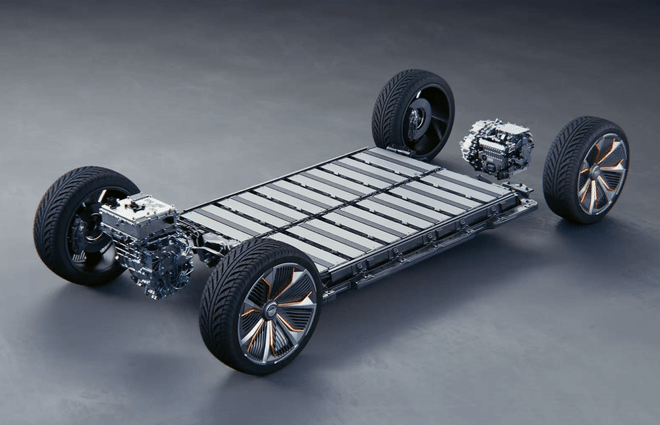The United Autoworkers’ strike doubtless has multiple causes, but the transition to EVs is certainly one bone of contention. EVs are simpler machines than legacy vehicles, and many expect this to translate into less demand for human labor. A wave of new battery plants will surely create new jobs, but some fear that automakers will fill these with low-paid, non-union workers.
If electrification is one of the underlying causes of labor-vs-management strife, then perhaps it’s fitting that an agreement about electrification has averted an escalation of the strike, and brought about the first significant step towards resolving the dispute.
The UAW union and GM have reached an agreement to unionize battery production across the automaker’s EV manufacturing facilities. The union described the agreement as “guaranteeing that the transition to electric vehicles at GM will be a just transition that brings good union jobs to communities across America,” and suspended a planned expansion of strike action to GM’s Arlington Assembly plant in Texas.
The news defuses claims from some anti-EV voices that have been claiming that electrification threatens the health of the US auto industry. “We have been told the EV future must be a race to the bottom,” said UAW president Shawn Fain. “We called their bluff. The plan was to draw down engine and transmission plants, and permanently replace them with low-wage battery jobs.”
The agreement also addresses the fear that US automakers will outsource battery production to joint ventures with Chinese companies, allowing them to eliminate union jobs and evade the Biden Administration’s Made in America policies—while taking advantage of government subsidies. (Ford recently suspended a plan to build a battery plant under a JV with Chinese battery firm CATL, amid pressure from US legislators.)
GM currently has one battery plant up and running in Ohio—a joint venture with South Korean firm LG Energy Solution. The details of the pay and benefits those workers will get under a new master contract are still being worked out, an unnamed source told the Detroit Free Press.
GM’s “leapfrogging” of the other two US automakers, as Fain called it, will increase the pressure on Ford and Stellantis to follow suit.
“GM surely dodged a bullet and the other two will have little choice but to follow,” Harley Shaiken, Professor Emeritus at the University of California-Berkeley, told the Free Press. “This victory for the UAW could prove pivotal to new organizing, particularly of battery plants. It will still be tough, but battery workers will be looking at the possibility of UAW wages rather than fast food wages as the model.”
A Ford spokesperson said, “We remain open to the possibility of working with the UAW on future battery plants in the US, reminding [them] that these are multibillion-dollar investments and have to operate at sustainably competitive levels. As you know, three of four battery plants we’ve announced are part of the BlueOval SK joint venture between Ford and [South Korean company] SK On. Workers for none of the four have been hired and won’t be for a while. When they are, they can choose union representation and enter into collective bargaining. In the meantime, we’ve made clear that none of our employees, including those who work on powertrains, will lose their jobs because of battery plants during this contract period.”
Of course, not everyone is happy about the deal. Unionized plants are likely to mean higher labor costs, which could put the Big Three at a competitive disadvantage against union-busting Tesla, and other automakers that produce EVs in so-called “right to work” states.
“Fain may not be eating the rich, but he is eating the car companies,” said Erik Gordon, a Professor at the University of Michigan, referring to a provocatively proletarian t-shirt that the union leader wore in recent video appearances. “It looks as if car companies are resigned to trying to make the EV transition with a cost structure higher than their competitors.”
Sources: Detroit Free Press, EVinFocus, Electrek


















































































